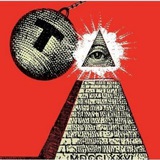Forwarded from Son Go Q Video Backups
Media is too big
VIEW IN TELEGRAM
Babylon Berlin -Veikko Stölzer - Seminarwoche an der Thaya (08.09.2021)_HD
Forwarded from Son Go Q Video Backups
Media is too big
VIEW IN TELEGRAM
Babylon Berlin -Veikko Stölzer - Seminarwoche an der Thaya (08.09.2021)_SD
Forwarded from Lion
Wie Kaiser Karl I. im Schweizer Exil einen Putschversuch plante
https://magazin.nzz.ch/nzz-am-sonntag/wissen/wie-kaiser-karl-i-im-schweizer-exil-einen-putschversuch-plante-ld.1710211
https://magazin.nzz.ch/nzz-am-sonntag/wissen/wie-kaiser-karl-i-im-schweizer-exil-einen-putschversuch-plante-ld.1710211
Neue Zürcher Zeitung
Wie Kaiser Karl I. im Schweizer Exil einen Putschversuch plante
1919 rettet sich Karl I., Herrscher von Österreich-Ungarn, in die Schweiz. Von hier aus unternimmt er zwei Putschversuche. Sein Cousin Eugen macht es sich derweil in Basel gemütlich.
Forwarded from Petra
Bundesrechnungshof rügt Kosten: Geheimdienst verprasste für Spaßprogramm 577 Prozent mehr als erlaubt - DER SPIEGEL
https://www.spiegel.de/politik/deutschland/bundesrechnungshof-ruegt-kosten-geheimdienst-verprasste-fuer-spassprogramm-577-prozent-mehr-als-erlaubt-a-9cd607df-9233-4b34-95b6-ed3f86ac0586
https://www.spiegel.de/politik/deutschland/bundesrechnungshof-ruegt-kosten-geheimdienst-verprasste-fuer-spassprogramm-577-prozent-mehr-als-erlaubt-a-9cd607df-9233-4b34-95b6-ed3f86ac0586
Spiegel
(S+) Bundesrechnungshof rügt Kosten: Geheimdienst verprasste für Spaßprogramm 577 Prozent mehr als erlaubt
Einmal im Jahr müssen die Nachrichtendienste ihre Bücher öffnen, für den Rechnungshof. Der entdeckte einen luxuriösen Bootsausflug, teure Bewirtung und schlechte Personalpolitik. Der SPIEGEL konnte die geheimen Mahnschreiben einsehen.
Forwarded from A. Uphoff
Sie nennen ihn König von Israel
https://www.faz.net/aktuell/feuilleton/debatten/sie-nennen-ihn-koenig-von-israel-18432296.html
https://www.faz.net/aktuell/feuilleton/debatten/sie-nennen-ihn-koenig-von-israel-18432296.html
FAZ.NET
Sie nennen ihn König von Israel
Zwei gesellschaftliche Lager stehen sich in Israel unversöhnlich gegenüber. Mit dem Wahlergebnis kommt es zum Bruch.
3 November 1534 – English Parliament passes the first Act of Supremacy, making King Henry VIII head of the Anglican Church, supplanting the pope and the Roman Catholic Church.
It granted King Henry VIII of England and subsequent monarchs Royal Supremacy, such that he was declared the Supreme Head of the Church of England. Royal Supremacy is specifically used to describe the legal sovereignty of the civil laws over the laws of the Church in England.
The act declared that the king was "the only supreme head on Earth of the Church of England" and that the Crown shall enjoy "all honours, dignities, preeminences, jurisdictions, privileges, authorities, immunities, profits, and commodities to the said dignity." The wording of the act made clear that Parliament was not granting the king the title (thereby suggesting that they had the right to withdraw it later); rather, it was acknowledging an established fact. In the Act of Supremacy, Henry abandoned Rome completely. He thereby asserted the independence of the Ecclesia Anglicana. He appointed himself and his successors as the supreme rulers of the English church. Earlier, Henry had been declared "Defender of the Faith" (Fidei defensor) in 1521 by Pope Leo X for his pamphlet accusing Martin Luther of heresy. Parliament later conferred this title upon Henry in 1544.
The 1534 Act marks the beginning of the English Reformation. There were a number of reasons for this Act, primarily the need for a male heir to the throne. Henry tried for years to obtain an annulment of his marriage to Catherine of Aragon, and had convinced himself that God was punishing him for marrying his brother's widow. Pope Clement VII refused to grant the annulment because, according to Roman Catholic teaching, a validly contracted marriage is indissoluble until death, and thus the pope cannot annul a marriage simply because of a canonical impediment previously dispensed. The Treasons Act was later passed: it provided that to disavow the Act of Supremacy and to deprive the king of his "dignity, title, or name" was to be considered treason. The most famous public figure to resist the Treasons Act was Sir Thomas More.
It granted King Henry VIII of England and subsequent monarchs Royal Supremacy, such that he was declared the Supreme Head of the Church of England. Royal Supremacy is specifically used to describe the legal sovereignty of the civil laws over the laws of the Church in England.
The act declared that the king was "the only supreme head on Earth of the Church of England" and that the Crown shall enjoy "all honours, dignities, preeminences, jurisdictions, privileges, authorities, immunities, profits, and commodities to the said dignity." The wording of the act made clear that Parliament was not granting the king the title (thereby suggesting that they had the right to withdraw it later); rather, it was acknowledging an established fact. In the Act of Supremacy, Henry abandoned Rome completely. He thereby asserted the independence of the Ecclesia Anglicana. He appointed himself and his successors as the supreme rulers of the English church. Earlier, Henry had been declared "Defender of the Faith" (Fidei defensor) in 1521 by Pope Leo X for his pamphlet accusing Martin Luther of heresy. Parliament later conferred this title upon Henry in 1544.
The 1534 Act marks the beginning of the English Reformation. There were a number of reasons for this Act, primarily the need for a male heir to the throne. Henry tried for years to obtain an annulment of his marriage to Catherine of Aragon, and had convinced himself that God was punishing him for marrying his brother's widow. Pope Clement VII refused to grant the annulment because, according to Roman Catholic teaching, a validly contracted marriage is indissoluble until death, and thus the pope cannot annul a marriage simply because of a canonical impediment previously dispensed. The Treasons Act was later passed: it provided that to disavow the Act of Supremacy and to deprive the king of his "dignity, title, or name" was to be considered treason. The most famous public figure to resist the Treasons Act was Sir Thomas More.
